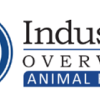Recent Posts
- Building a Robust and Diverse Ecosystem Innovation Ecosystem in the Animal Health Industry
- Cultivating A Champion Culture: Balancing Performance and People in Animal Health
- How Stable are Earnings in Animal Health? Results of the Animal Health Jobs 2025 Salary Survey
- Entry Fees for the Race for Talent: Results of the Animal Health Jobs 2025 Salary Survey
- Looking In The Gift Horse’s Mouth: The Pros and Cons of Counteroffers in Animal Health
Most Popular
-

How Stable are Earnings in Animal Health? Results of the Animal Health Jobs 2025 Salary Survey
-

How Will Artificial Intelligence Change Jobs In Animal Health?
-

News to Know from Brakke Consulting’s 2025 Animal Health Industry Overview
-

Building a Robust and Diverse Ecosystem Innovation Ecosystem in the Animal Health Industry
-

Entry Fees for the Race for Talent: Results of the Animal Health Jobs 2025 Salary Survey
How Will Artificial Intelligence Change Jobs In Animal Health?

As they become more sophisticated and capable of better imitating humans, animal health insiders have begun to wonder whether, as the automobile replaced the horse, artificial intelligence programs can replace knowledge workers.
What are these programs?
Chat GPT, Bard, and similar programs are all versions of Large Language Models (LLM) powered by artificial intelligence (AI). They represent an evolution in AI and machine learning. Some futurists believe that LLMs will eventually replace most knowledge workers, from researchers and veterinarians to marketers and financial analysts.
LLMs present answers to questions by summarizing existing information available on the Internet. They cannot draw new conclusions or make intuitive leaps in thinking.
In animal health, LLMs can be useful for drafting competitor overviews, FAQs, and information summaries. In research, they can assemble literature reviews and make it easier to find knowledge gaps. One company has launched a pet parent knowledge database using ChatGPT, meeting pet owners’ demands for instant access to a range of veterinary and pet care information without having to wait for a veterinary consultation.
What are the limitations of AI programs in animal health?
As with all other cutting-edge technologies, AI is coming to animal health. Knowledge workers can take comfort in knowing that AI is not yet ready to replace true intellect and expertise. It’s limited in several ways:
Accuracy: “Garbage in, garbage out” also applies to artificial intelligence. Since it draws information from a mix of sources of varying quality, its answers are not always complete or accurate. This can have serious implications for animal health: One veterinary hospital gave Chat GPT mixed reviews for its answers to some common pet owners questions.
Potential bias LLMs are trained by people, and this training can create inherent bias. When the editor of the Journal of the American Veterinary Medical Association used ChatGPT to draft an editorial, reviewers quickly identified a bias in favor of LLMs and a failure to adequately address the challenges in using LLMs for scholarly publishing.
Just the facts Presented answers are limited to facts that relate to the question. LLMs cannot make leaps of intuition – where big breakthroughs tend to happen – or draw their own new conclusions. They can repeat, but they cannot yet think.
Reference rodeo An LLM may include many facts in its answers without referencing them appropriately. In animal health, science, and business, accuracy and attribution are essential. Until it provides links to references, an LLM cannot write your scientific publication or regulatory summary.
In our sample prompt “what is the best way to treat a cat with FIP?”, the system did not mention unapproved human drugs that owners are actively (and illegally) sourcing but did mention evidence of efficacy in cats treated with multiple rabies vaccinations. A follow-up prompt asking for data to support this statement cited two studies, neither of which could be located in PubMed or Google Scholar. The ethical implications of such situations are clear.
How will AI programs change job requirements in animal health?
AI-powered language models will soon become part of everyday life in animal health companies. Using them successfully will require people with the right skills. We expect a new emphasis on the following areas:
Topical expertise Because AI programs merely collect and present existing information, they cannot identify rumors and falsehoods. Job candidates will still require enough expertise in animal health to separate the wheat from the chaff.
Well-crafted prompts Getting useful content from an LLM program requires asking it the right questions. Companies may change their interview strategies, emphasizing the ability to ask questions with the right balance of specificity and freedom.
Research skills As we discovered with our test prompt, an LLM’s reference citations are not always reliable. As a highly regulated industry that deals with matters of individual and public health, animal health is held to a high standard for accuracy and ethics. Companies will value employees who can quickly confirm the existence of key references and use their expertise to determine whether those references are relevant and of sufficient quality.
Creative thinking Because LLM programs can only regurgitate pre-published information, the human ability to draw new connections and see new opportunities will remain valuable as animal health companies look for new talent.
Still an opportunity, not yet a threat
Could an LLM have written this blog post? At this point, no. It could have created a draft post summarizing how LLM technology has been applied to animal health so far, and share ideas described by others and published on the web. Its predictions about how LLM will change the animal health industry in the future were so broad as to be meaningless. For now, at least, imagination requires an organic brain. My job is safe!
---
Looking for candidates who can keep your company on top of the latest technology for animal health? You’ll find them at Animal Health Jobs, the premier job marketplace in animal health. Post your open animal health job now.



Comments